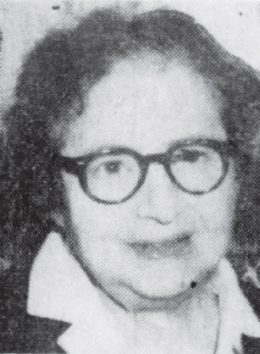Alice Herz facts for kids
Quick facts for kids
Alice Herz
|
|
|---|---|
 |
|
| Born |
Alice Jeanette Strauß
May 25, 1882 |
| Died | March 26, 1965 (aged 82) Detroit, Michigan, U.S.
|
| Occupation | Writer |
| Spouse(s) | Paul Herz |
| Children | 2 |
Alice Jeanette Herz was a brave German woman born in 1882. She worked hard for women's rights, stood against unfair governments, and promoted peace. She was known as a feminist, anti-fascist, and peace activist.
Contents
Early Life and Education
Alice Jeanette Strauß was born in Hamburg, Germany, on May 25, 1882. She was the first child of Rosalie and Moritz Strauß, who were both of German-Jewish background. Alice had six younger brothers and sisters.
She finished her intermediate education and planned to become a teacher. However, an eye problem stopped her from completing her studies. Instead, she found a job as a secretary in a lawyer's office. In 1907, Alice changed her religion from Judaism to Protestantism.
Fighting for Rights in Germany
In the early 1900s, Alice Herz joined the feminist movement. This movement worked to make sure women had the same rights as men. Alice strongly supported giving women the right to vote. She also believed in cohabitation, which meant people could live together without being married.
Alice married Paul Herz, a chemist. Paul's sister, Margarete Herz, was also a well-known suffragette, a person who fought for women's right to vote. Alice and Paul moved to Güstrow and had two children: Helga, born in 1912, and Konrad, born in 1915. Sadly, Konrad was born with health issues and was almost blind.
World War I and Women's Vote
When World War I began, Alice's husband, Paul, joined the military. Alice expected the war to end quickly and Paul to return home soon. But by 1918, the war was still going on. Alice began to openly support making Germany more democratic. She worked with other activists and feminists who wanted women to have the right to vote.
Their efforts helped. When World War I ended in November 1918, Germany became the Weimar Republic. This new government gave women the right to vote. In 1919, the Herz family moved to Berlin-Mahlsdorf. Paul found a job at a rubber factory. Sadly, Paul died in 1928 at age 45, possibly due to chemicals at his job. Their son Konrad passed away just weeks later from his health problems.
Leaving Germany for Safety
By 1933, Alice Herz was worried about the rise of antisemitism (hatred against Jewish people) and the growing power of right-wing groups in Germany. She had been thinking about leaving Germany for a few years. Her decision became firm when Adolf Hitler became the leader of Germany. Alice correctly predicted that Jewish people and political opponents would face serious problems, especially after the Reichstag fire.
On March 13, 1933, Alice and her daughter Helga left Germany for Switzerland. Later, they moved to France. In France, Alice learned French and Esperanto, a language created to be easy to learn. Both Alice and Helga continued their political work. They joined the Women's International League for Peace and Freedom. Alice wrote articles criticizing Nazism for publications of the Social Democratic Party of Germany. When the Nazi government shut down her group, she became a writer for a Swiss Christian socialist magazine called Neue Wege.
After Germany invaded France in 1940, Alice and Helga spent time in the Gurs internment camp near the Spanish border. In 1942, Alice and Helga finally came to the United States.
Life in the United States
Alice and Helga settled in Detroit, Michigan. Helga became a librarian at the Detroit Public Library. Alice worked for a while as a German teacher at Wayne State University.
They tried to become U.S. citizens, but they were denied. This was because they refused to promise to defend the nation with weapons. Helga later applied again and became a citizen in 1954. It is not clear if Alice ever did. Alice and Helga joined the Unitarians, a religious group, and became active in several peace groups.
Speaking Out Against War
Alice Herz wrote an open letter and shared it with her friends and other activists. In her letter, she accused President Lyndon B. Johnson of using military power to "wipe out whole countries." She urged the American people to "awake and take action" against war.
Death and Lasting Impact
Alice Herz passed away in Detroit on March 26, 1965, at the age of 82.
After her death, a Japanese writer and philosopher named Shingo Shibata created the Alice Herz Peace Fund. In 2003, a square in Berlin was named Alice-Herz-Platz in her honor.
See also
- Norman Morrison
- Roger Allen LaPorte
- George Winne, Jr.

